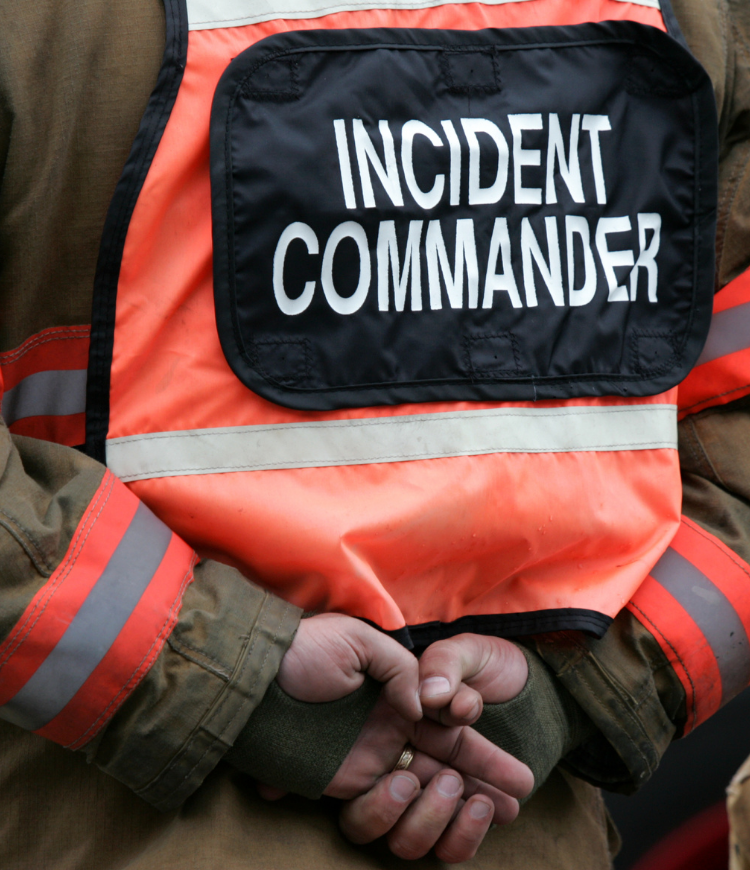From a communications perspective, the underlying commonality between all crises is that something bad has happened and there’s a long list of things to do. You need to get ahead (or a hold of) the story to position yourself as the official source of information and mitigate the risk to your organization’s corporate reputation.
The type of crisis you are responding to, however, makes a big difference in the approach you take. At Coast Comms we do both crisis comms for environmental disasters (ex. a marine oil spill), as well as crises that are largely reputational in nature (ex. CEO participating in insider trading). Is there a way to apply communications best practices from the former to the latter?
We think so. Here are our top tips.
Having a plan isn’t enough
We all have crisis comms plans, but they are the baseline, the first step in helping you prepare. Training on your crisis communications plan is just as important, but it’s not always prioritized by organizations (budget- or time-wise). In emergency response, training is the name of the game for both ops and communications teams. Everyone needs to know their role and the people they’ll be working with when disaster strikes. Familiarity increases the effectiveness of your strategies, and in the absence of an actual crisis, regular training is what brings your team together and helps you achieve this.
Organize training sessions twice a year to do a tabletop exercise of your plan and work through it with your team and any other colleagues who might be involved in the crises. It’s a great way to identify inefficiencies, close up holes and tweak tactics that may not actually work IRL. (Think how much we have had to do to shore up our virtual tools, for example, during the pandemic.) Consistent training will also ensure the plan is updated regularly to reflect new scenarios and that new colleagues are looped into the strategy, which will tighten your response capacity overall.
Get your pre-approvals in order
Avoid “policy by news release,” that wonderful process whereby no decisions are made until the release goes round for “final” approval. Instead, create processes in advance and have all required sign-offs in your pocket before a crisis hits, for as much as possible at least. You have to streamline the approvals process during a crisis, going only to the top for authorizations.
Another best practice is to immediately request authorization to use previously approved and related internal information in all comms outreach. That means you can immediately release updates on your channels, allowing you to take control of the narrative and correct misinformation without having to wait for your team to draft a release or statement and then get all the required sign-offs. This can take hours in any kind of crisis, and there is never time for that. By then there’ll be a CP story running province- or nation-wide, and you’ll be playing catch-up for days.
Templates, templates, templates
If you don’t have them, draft them and get them pre-approved. Tweets, initial statements, news releases, follow-up statements, speaking notes, fact sheets, media availabilities, Day 2 and Day 3 plans—whatever content you are likely to create in the early hours and days of a crisis. It’s so much easier to fill in the blanks than write from scratch. Update your templates after your training exercises, and make sure the most recent drafts have been pre-approved.
Create workarounds for cumbersome policies or decisions
There are always going to be policies or decisions that inhibit a quick response. I’ve been in situations where a Tweet had to go to a different time zone for sign-off before we could put it out! Identify the roadblocks in your organizations (I’m sure you already know some of them…), figure out solutions that will work for all and, if politically acceptable to do so, include them in your crisis comms plan. Sometimes leadership will make decisions you cannot plan for and that you fundamentally disagree with from a PR perspective. Know your allies in advance and work with them to find a solution during the crisis.
Comms people are the only comms people
One of the best things about working in an emergency response environment is that you are surrounded by experts. Knowledge and experience are everything, and typically no one is trying to do anyone else’s job. For a comms person, this means you don’t have to argue every tactic or point with colleagues whose subject matter expertise lies elsewhere.
That’s not to say there isn’t healthy debate, but this is typically happening within the communications group rather than the situation room. Put a marker down in your organization that your team are the pros at what they do. If you anticipate your work environment will allow for colleagues to step in as “comms people,” ensure you have strategies to work around this. Following the steps laid out above will be helpful in this regard.
Send in your best team
Sending in the A-team (internal or external) is key. The faster you start providing (and acting on) accurate and tested advice, the faster you’ll gain credibility and open up the space you need to move. This also means we all need to be at our best. Refresh your Justice Institute Incident Command System training if you need to. Do some professional development by bringing in crisis comms experts to tune up your skills and knowledge.
Take care of your team
Finally, take care of the first responders — the comms teams that are working on the crisis. We’ve seen burnout, frustration, overwork and worse during this pandemic because most organizations are still looking at it like a long issue to manage. Applying all-hazards crisis comms best practices, we recognize it for what it is: a big crisis that keeps getting bigger. Recruit extra resources. Check in on your team’s health. Be crystal clear about deliverables, outcomes and responsibilities as this helps create structure and boundaries when executing on the work that needs to be done.
The good news is that—like all good things—all bad things come to an end too and organizations can recover from any kind of crisis. But how long it takes to recover, and the type of recovery you have, is going to depend largely on what you do in the early days and how you do it. This process begins long before the crisis hits, and taking the steps to create your response foundation will shorten the crisis in the long-run.
Click here for more information on our issues management, crisis communications planning, advice and support.



